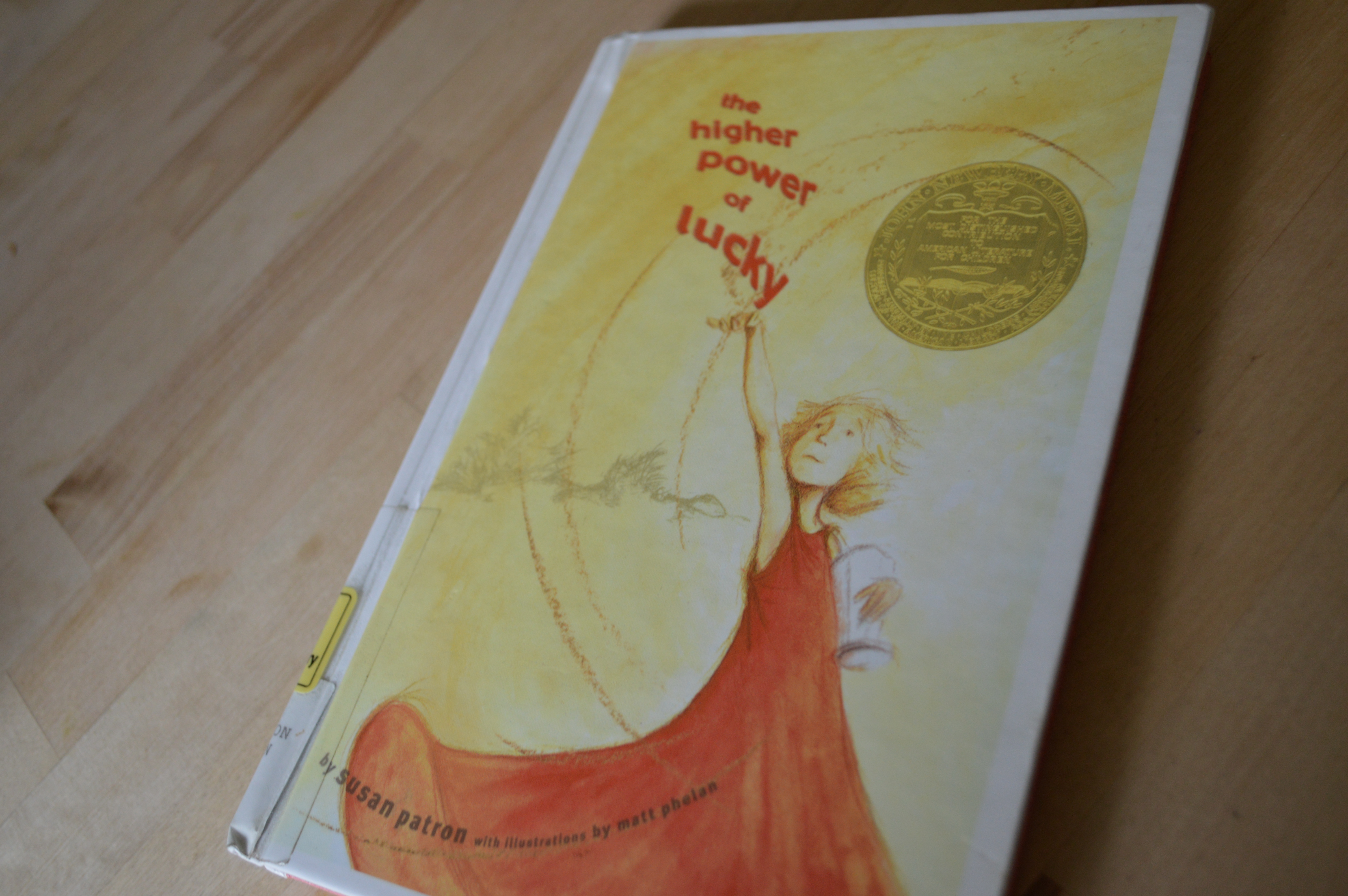
2007 Newbery winner, The Higher Power of Lucky by Susan Patron (2007) is the tale of Lucky and her search for a family. After Lucky’s mother dies, her father contacts his first wife, beautiful French Brigitte (who had divorced him when he refused to have children), to come look after Lucky in the middle of the southwest desert in a tiny town. Lucky loves Brigitte but is worried that Brigitte misses France too much to want to stay and become her permanent guardian.
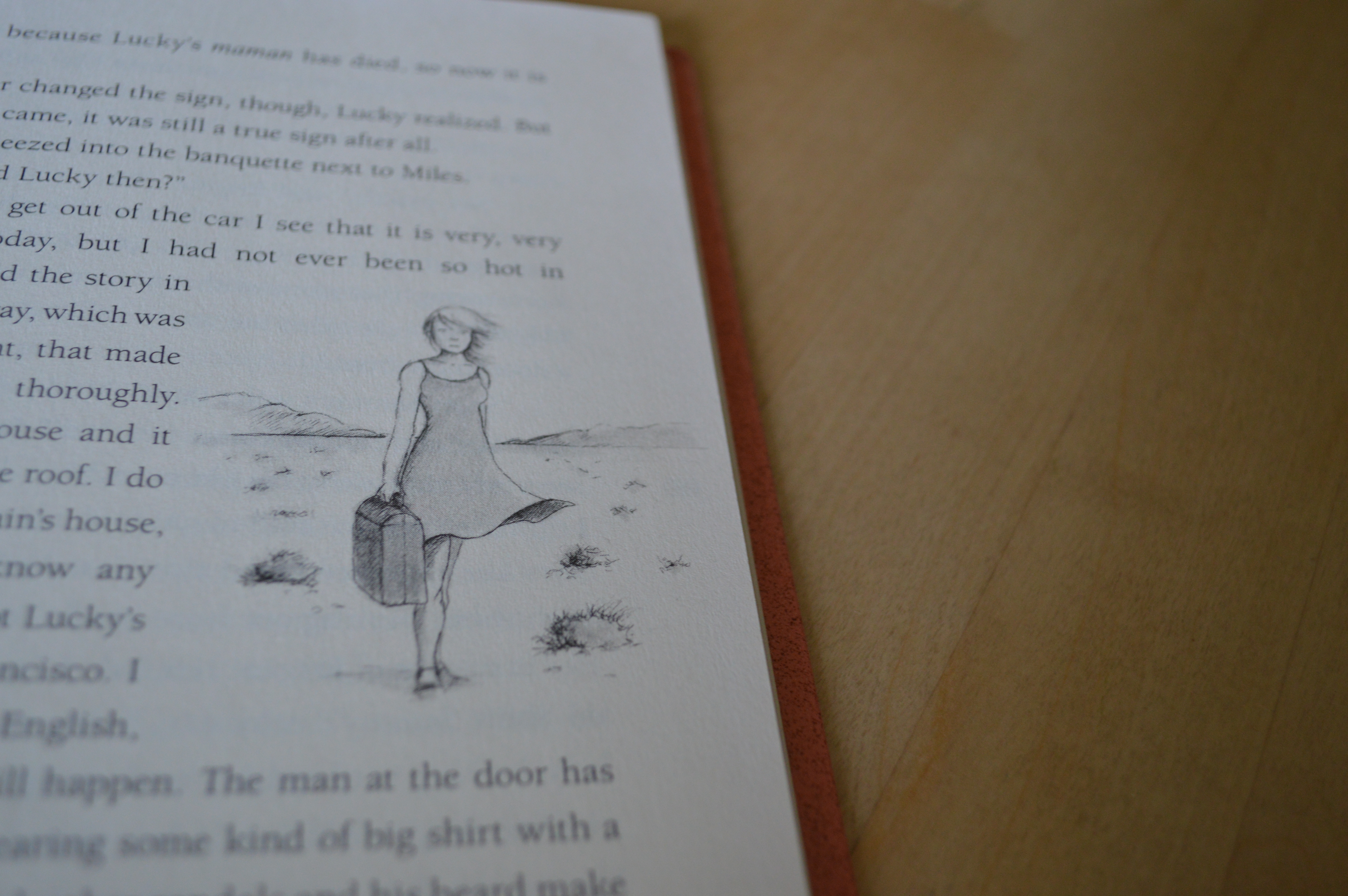
What I liked. There are all sorts of things I liked about this book, especially the Brigitte with her fresh ground parsley, her beautiful red dress, and her love of Lucky. I liked the used of Are You My Mother by PD Eastman in the book, and the warmth of the small town characters who clearly really cared for one another.
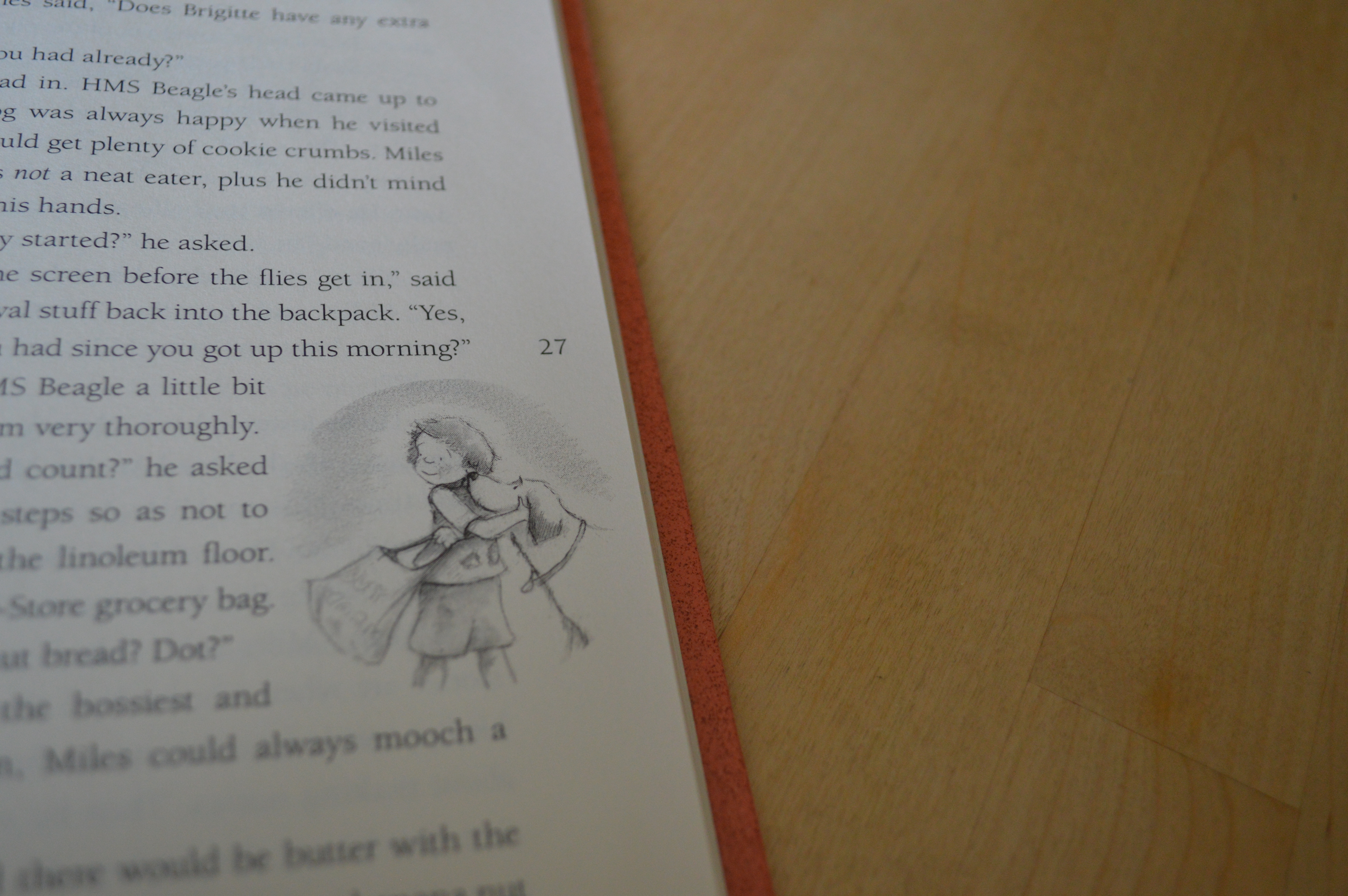
What was interesting. I thought the description of the 12-Step Meetings, and Lucky’s interest in their stories was so interesting. My step-Grandpa Charlie was a long-time member of AA, and once my brother and I were traveling with he and my Grandma and they took us to an AA meeting. I was probably about Lucky’s age, maybe 9. I remember the stories were so interesting, of people hitting rock bottom and wanting to make a change. So I could totally see a girl wanting to eavesdrop to listen to people’s stories. Also, the first time that I read this book, nearly ten years ago now, I read Lucky’s name as “Lucy” for the whole book: dyslexia strikes again.
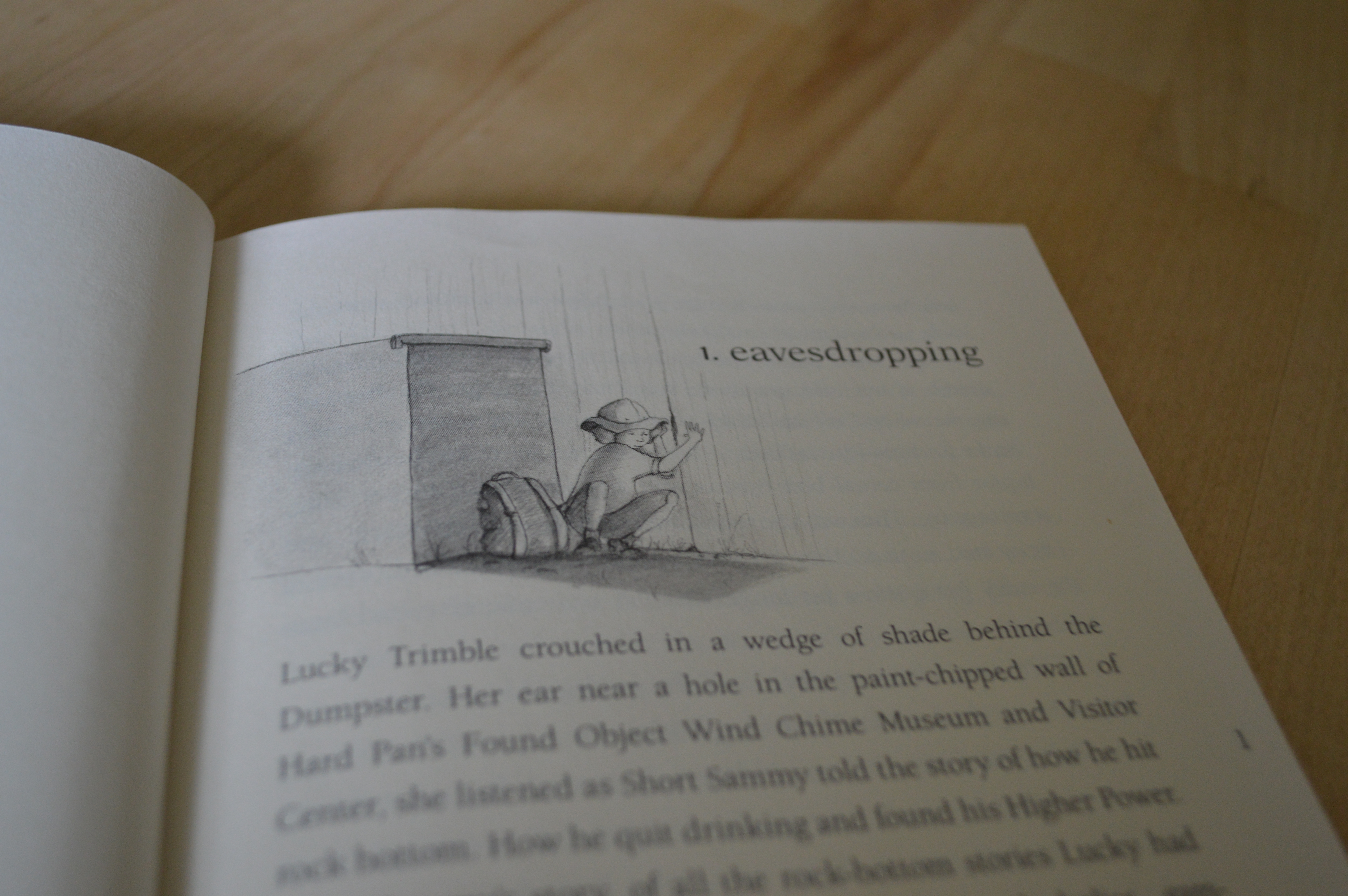
What were some limitations. I wouldn’t say this was a limitation as much as a controversy, but this book caused quite a splash by using the word “scrotum” on the first page. (A rattlesnake attacks the private parts of a dog that Lucky hears about eavesdropping on the AA meeting.) A lot of people wrote strongly opinionated pieces about whether that was or was not something that a middle grade novel should contain, and it was banned (or just not purchased) at various schools. Neil Gaiman (who would win the Newbery two years later in 2009) argued for the writer’s freedom (and that in Britain this would not be particularly vulgar) in his online journal blog.
I also appreciated Susan Patron’s interview on NPR where she talks about her background as a public librarian and how that informs her writing. I think this controversy probably reveals some of the ways that middle grade literature is such a broad category and the Newbery award as well spans quite a gulf of reading and age levels. Personally, I think that I wouldn’t be bold enough to use that particular word, but I think that Susan Patron was completely within her rights to use it, and she put it to good use. Lucky is eavesdropping when she hears that story, it’s an anatomically correct word that’s not used in a sexual way, and when Lucky does bring it up to her guardian at the end of the book, her guardian Brigitte takes it very seriously and makes sure that Lucky is safe and not being misused in anyway.
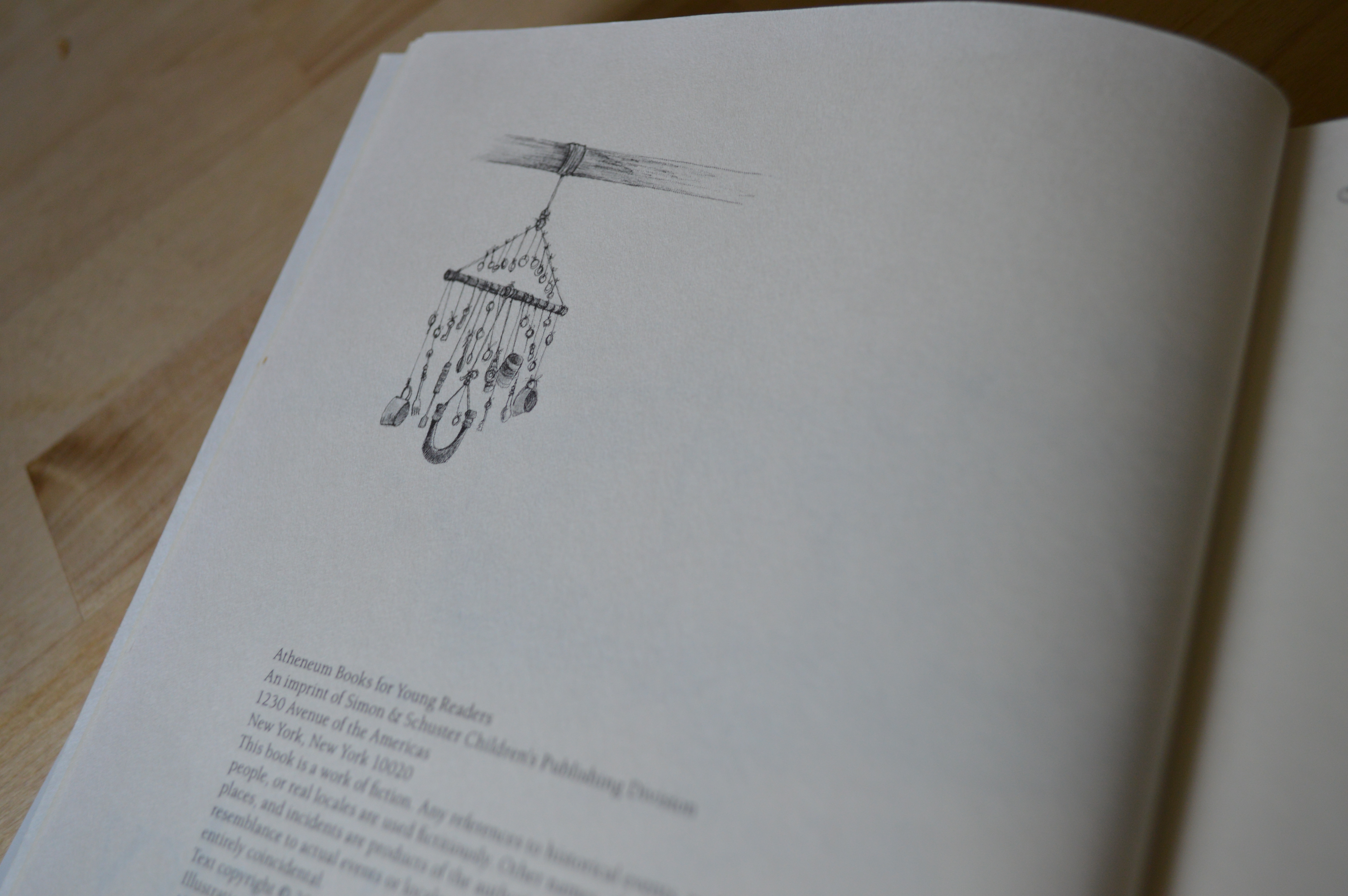
Similarity to other Newbery winners. It does join the ranks of a number of Newberies featuring motherless girls searching for a mother figure like Up a Road Slowly, Summer of the Swans, A Gathering of Days: A New England Girl’s Journal, Sarah, Plain and Tall, Missing May, Dicey’s Song, Walk Two Moons, and Out of the Dust. It has a desert setting like Waterless Mountain and Holes and a dust storm like Out of the Dust as well as a failed running away attempt at the end of the book, although otherwise the books are very different in tone and mood. In many ways, I think it felt more like Sarah, Plain and Tall, with a young girl really longing for the kind mother figure to want to commit to being her real mother.
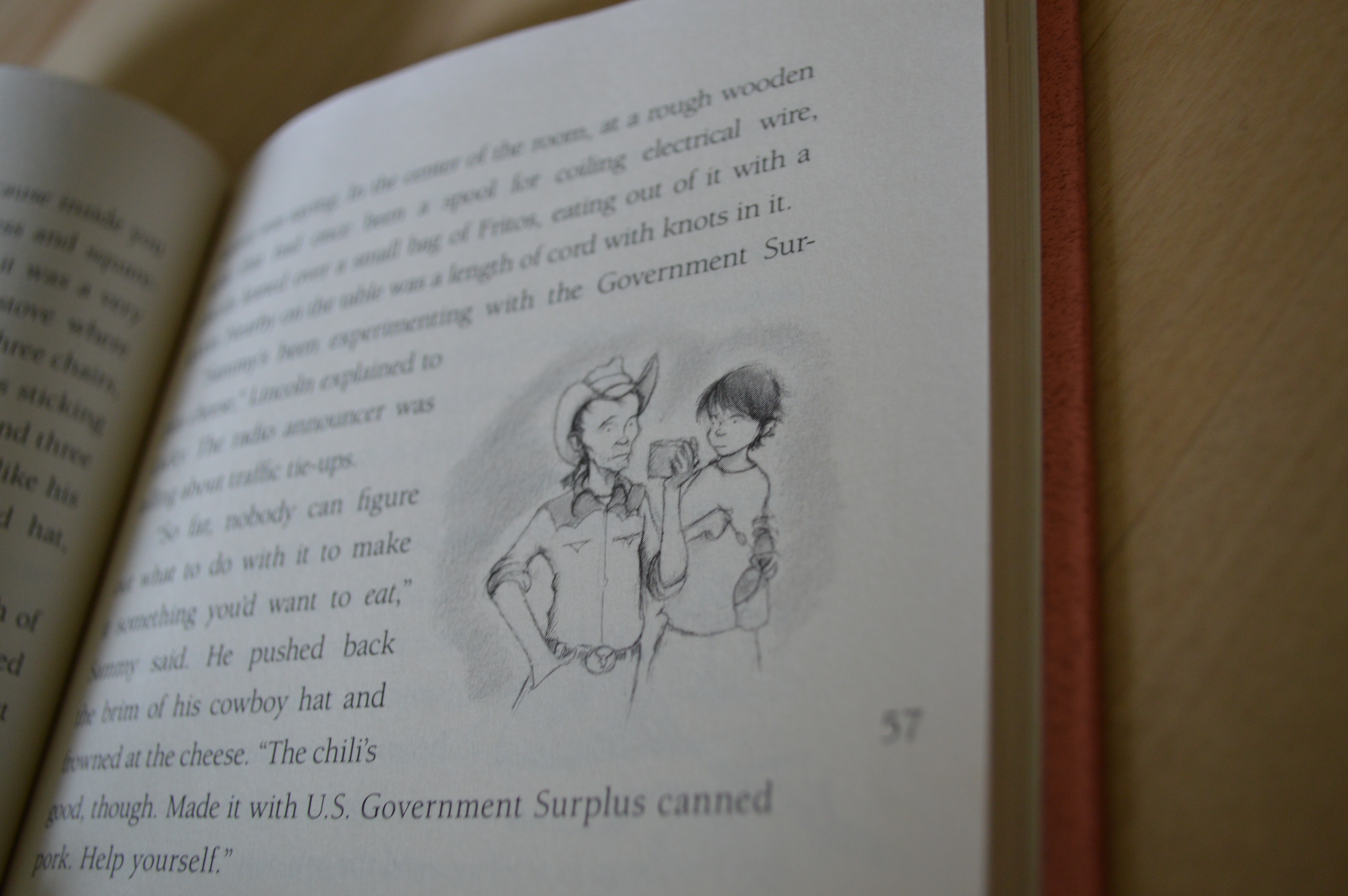
What it teaches me as a writer. I think what really stuck with me this time was the strengths of the images: Lucky peaking into the AA meeting, the beautiful red dress, or the bent prongs of the parsley grinder. I loved how Susan Patron was bold enough to use a striking image, a strong word, contrasting goodness and heartbreak to pack a punch in such a little book.
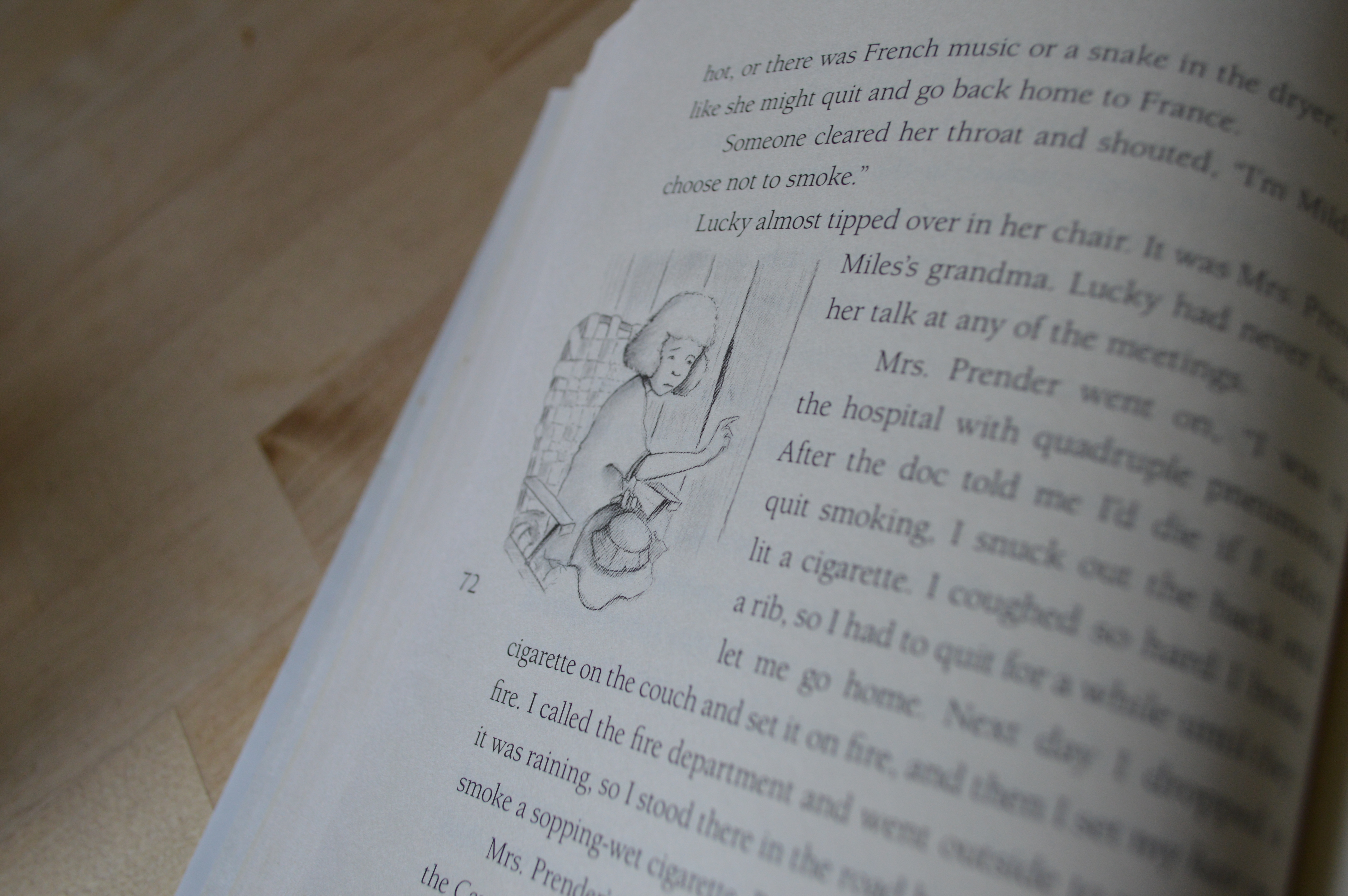
Have you read The Higher Power of Lucky? What are your favorite controversial or previously banned kids’ novels?
*Note* This post contains Amazon affiliate links, which means if you were to buy a book, I’d get a tiny commission at no cost to you. Thanks for supporting Stories & Thyme!*